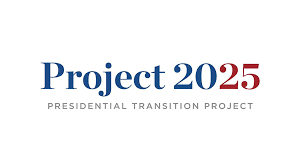The Heritage Foundation’s Project 2025 has published a report that is essentially a blueprint for what they urge the incoming Trump administration to accomplish. While the report itself distances itself from Mr. Trump, the narrative pursued by their leadership over the last year suggests the team at the Heritage foundation has been collaborating closely with the persons that would be expected to have power shortly.
The report proposes extensive changes to the U.S. Department of Health and Human Services including CDC, FDA, HRSA, CMS and the NIH. While framed as cost-cutting and efficiency measures in the report, the reforms risk eroding critical public health infrastructure and reducing agency effectiveness.
Project 2025: Heritage Foundation’s Blueprint for Undermining the US Department of Health and Human Services
Here’s a breakdown of the potentially damaging public health impacts if these recommendations were implemented:
- Weakened Regulatory Oversight on Health
The plan suggests reducing the regulatory role of agencies like the FDA & CDC. If these changes were adopted, oversight over drug and food safety, disease prevention, and vaccine efficacy could weaken, potentially increasing public exposure to unsafe products and preventable diseases. - Diminished Support for Vulnerable Populations
Project 2025 proposes scaling back initiatives that serve at-risk groups, including those that support low-income families, the elderly, and individuals with disabilities. Rolling back programs such as Medicaid expansion and the Supplemental Nutrition Assistance Program (SNAP) could exacerbate health disparities and worsen health outcomes among these populations. - Restricting Reproductive and Preventative Health Services
The Heritage Foundation’s report emphasizes defunding programs focused on reproductive health, including contraception access and abortion services, which play critical roles in preventative health. Reduced access to reproductive services would likely result in adverse health outcomes, particularly among low-income individuals and those in rural areas. - Reduced Scope of Infectious Disease Monitoring
The report calls for a diminished focus on infectious disease tracking and control, suggesting that this should be a state rather than federal responsibility. This shift could result in delayed responses to emerging diseases, as states lack the resources and coordinated infrastructure to address national and global health threats alone. - Decreased Preparedness for Climate-Related Health Impacts
Project 2025 suggests deprioritizing climate-related health initiatives, despite growing evidence that extreme weather events are increasing in frequency and severity, posing serious health risks. By ignoring climate-related health impacts, the reforms could leave communities vulnerable to respiratory illnesses, heat-related deaths, and vector-borne diseases. - Potentially Politicized Health Guidance
By advocating for more politically aligned leadership within HHS, Project 2025 risks allowing political agendas to overshadow scientific guidance in public health decisions. This approach could weaken public trust and lead to inconsistent or biased health guidance. - Undermining Evidence-Based Practices
Project 2025 advocates for reducing federal agencies’ reliance on current scientific guidelines and best practices, arguing they lead to “mission creep.” However, weakening evidence-based measures could undermine HHS’s ability to respond to public health crises effectively and allow political bias to influence decisions traditionally grounded in science.
Implementing the recommendations from Project 2025 may lead to a fragmented, underfunded HHS, significantly weakening the nation’s ability to support and protect public health. Instead of enhancing efficiency, these reforms may compromise public safety, worsen health inequities, and hinder the government’s ability to respond to health crises.
